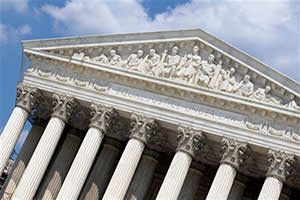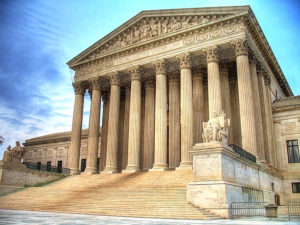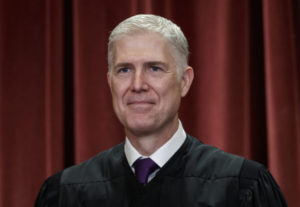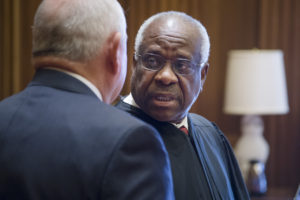Supreme Court: Police Can Take Your DNA Upon Arrest
In what's been hailed as a "resounding victory for law enforcement," a sharply divided Supreme Court ruled Monday that police can collect DNA samples from people arrested in connection with serious crimes.
In what’s been hailed as a “resounding victory for law enforcement,” a sharply divided Supreme Court reversed a lower court’s ruling when it decided Monday that police can collect DNA samples from people arrested in connection with serious crimes.
“DNA identification of arrestees is a reasonable search that can be considered part of a routine booking procedure,” Justice Anthony Kennedy wrote in the 5-4 majority opinion. “Taking and analyzing a cheek swab of the arrestee’s DNA is, like fingerprinting and photographing, a legitimate police booking procedure that is reasonable under the Fourth Amendment.”
The case made for strange bedfellows, as ultraconservative Justice Antonin Scalia was joined in his scathing dissent by three of the court’s liberal justices. Scalia argued that the case paves the way for increased DNA testing, which he says violates the Constitution’s protection against unreasonable searches.
“Make no mistake about it: because of today’s decision, your DNA can be taken and entered into a national database if you are ever arrested, rightly or wrongly, and for whatever reason,” Scalia wrote. “This will solve some extra crimes, to be sure. But so would taking your DNA whenever you fly on an airplane.”
The Hill:
The majority upheld a Maryland law allowing police to take DNA swabs from people who are charged with violent crimes, as long as they have probable cause for an arrest.
The case involves Alonzo King, who was arrested in 2009 on charges of first-degree assault. Police took a DNA sample and matched his DNA to an unsolved rape. King was tried and convicted in the rape but sued to have the DNA evidence suppressed.
He said taking a DNA swab without a warrant violated his Fourth Amendment protections against unreasonable search and seizure.
The case is Maryland v. King. The opinion can be read here.
— Posted by Tracy Bloom.
Your support matters…Independent journalism is under threat and overshadowed by heavily funded mainstream media.
You can help level the playing field. Become a member.
Your tax-deductible contribution keeps us digging beneath the headlines to give you thought-provoking, investigative reporting and analysis that unearths what's really happening- without compromise.
Give today to support our courageous, independent journalists.





You need to be a supporter to comment.
There are currently no responses to this article.
Be the first to respond.